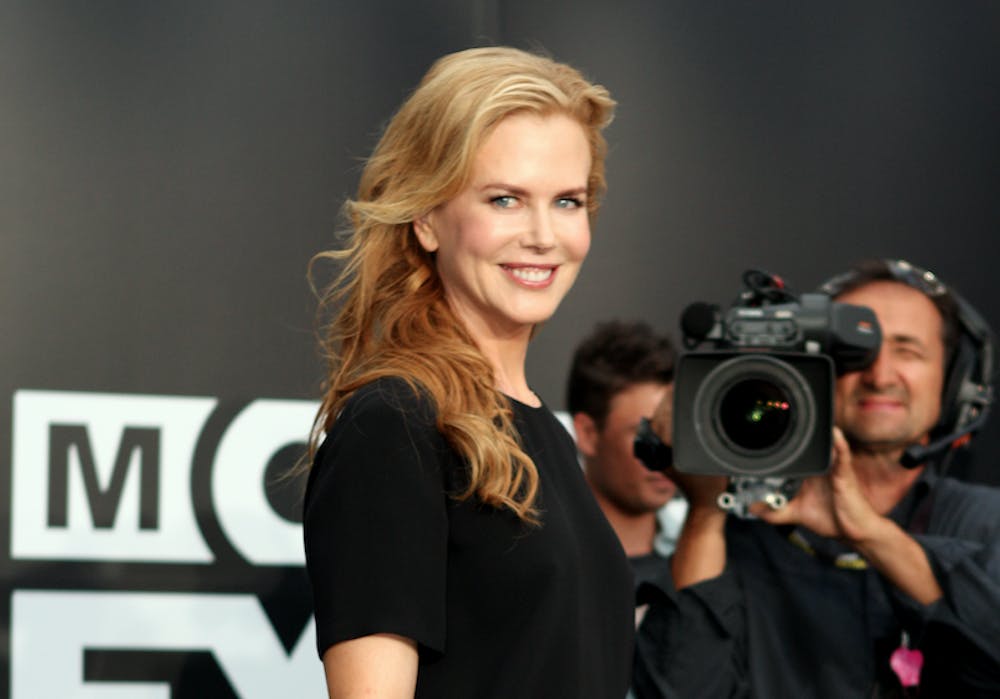It isn’t often that adaptations of “chick-lit” are viewed as meriting the kind of immense resources, star-power and attention that has been given to HBO’s latest mini-series, Big Little Lies (adapted from the Liane Moriarty novel of the same name).
Then again it also isn’t every day that television is produced by a company such as Reese Witherspoon’s Pacific Standard Productions, whose goal is to highlight nuanced narratives surrounding the female experience. Big Little Lies serves to disprove the normalization of the notion that a man will be unwilling to watch a show centered around dynamic female characters because it’s “too girly,” yet women and men will be equally willing to sit through the same big-budget, often male-centric films nominated for Oscars.
It shows that there is a underestimated, undervalued audience of strong, feminist women looking for characters that aren’t just stock models of “the girl next door” or “the manic pixie dream girl,” but that instead encompass a wide range of emotions and values depending on the circumstances surrounding them.
If Big Little Lies and Pacific Standard Productions’s other projects are any indication, then the future of great film and television is most certainly female.
So, you’re probably wondering, what is the basic plot of Big Little Lies? Well we’re alongside the relatively young single mom Jane (Shailene Woodley) and her son Ziggy as they enter into the ultra-rich, ultra-competitive realm of Monterey in California. Here, they encounter Madeline Martha Mackenzie (Reese Witherspoon), heralded as a “Type A Hero” by New York Magazine, a woman grappling with her ex-husband’s continued role in her and her new husband’s daily life as well as her teenage daughter’s growing resentment towards her. Quickly, intervening on the behalf of Jane and Ziggy becomes her pet-project.
Our somewhat-sympathetic antagonist is Renata Klein (Laura Dern), a career woman with a powerful position in the community who just wants to protect her daughter, yet is isolated from the other mothers who cannot relate to her decision to continue working rather than stay at home.
Then, last but not least, there’s Celeste Wright (Nicole Kidman), Madeline’s closest confidante. From the outside looking in, she has the perfect life, the beautiful children, the young, sexy husband, Perry (Alexander Skarsgård), the beautiful, picturesque home and the family that comes with it. Yet, something much more sinister lingers just beneath the surface. By the end of the first episode, we know someone within this circle has died. The rest, the victim and whodunnit, remains a mystery.
Long before she was nominated for The Descendants or starred in The Fault In Our Stars, I held the belief that Shailene Woodley was an underrated actress. Yes, that means I stuck with The Secret Life of The American Teenager long past its glory days (if those even existed).
More than any role she’s ever taken on, this one feels perfectly tailored to her skills. She’s the perfect balance of beautiful and approachable to make it plausible to us as viewers that Jane can feel alternately out of place and accepted in the Monterey community. Each moment she flashes before our eyes, we’re rooting for her.
From a feminist standpoint, Big Little Lies’ approach to what intimate partner violence can look like is refreshingly honest. What sometimes serves as a barrier for some people to sympathize with real life victims is the idea that it should be obvious when you’re getting into a relationship (specially when you’re married to someone) whether or not you’re potentially putting yourself at risk. In other words, that it should be written across the forehead of the person you’re with if they’re a rapist, violent, abusive, etc.
Clearly, Celeste didn’t know this side of Perry existed, and we can empathize with that because we see the shock, pain and disillusionment on her face when he takes out his insecurities and anger on her. Another aspect of this delicate subject that I think the show handles deftly is the idea of why people stay. It’s easy for others to look at someone in a toxic relationship and question why they would continue to go back to someone who has hurt them.
But we, as the audience, get a deeper glimpse of Celeste’s options each episode. We see that Perry is always contrite afterwards; He’s gentlemanly even. We watch her two kids play Nerf with him. We can begin to imagine the deeply embedded pain that tearing her family apart and permanently altering her children’s perspective of their father would awaken in Celeste, even if in doing so she would be saving herself.
So if you’re looking for a new not-so-guilty pleasure, Big Little Lies promises suspense and sexual tension, while still probing at deeper, thought-provoking questions about the human condition. Also after the first episode, you’ll definitely be daydreaming of living in the gorgeous, beachside homes inhabited by these characters.
Seriously, never before have fireplaces been so gorgeously shot in and of themselves. Of course, much of the credit for the continuity of the mood of throughout all of the aspects of the show is due to the work of director Jean-Marc Vallée (another frequent collaborator of Witherspoon’s), whose aesthetic and visual styles coalesce beautifully with the nature of the show.
As a fan of the book, I can honestly say Big Little Lies ranks among the best page-to-screen translations I have had the luxury of watching, and I could not recommend it more highly.





